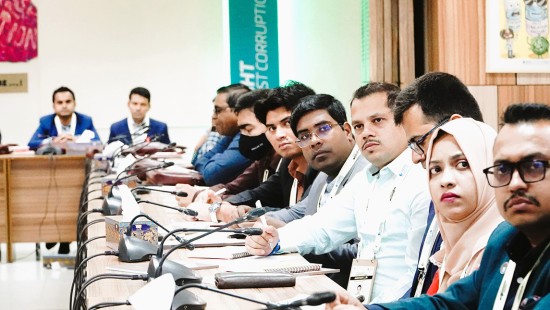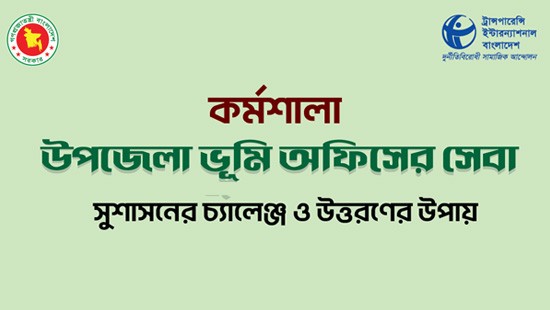Published: 21 September 2025
To enhance the oversight function of the media in anticipation of the national election, Transparency International Bangladesh (TIB) and the Reporters Forum for Election and Democracy (RFED) conducted a two-day training session on election reporting at TIB’s Dhanmondi office on 19–20 September 2025.
The conference room at TIB filled with enthusiasm as over forty journalists gathered for election reporting training. At the inaugural session, the President of the RFED commended the initiative and also reminded the participants that their work has the potential to impact public trust in elections. "This training will enable journalists to more responsibly serve democracy," he added. Dr. Iftekharuzzaman, Executive Director of TIB, delivering his opening address, emphasized that, "even though authoritarian rulers may have stepped down, authoritarian practices still persist in our political landscape. He called upon journalists to remain vigilant and report with complete objectivity and transparency. Journalists need to actively monitor the Election Commission, administration, law enforcement, and political parties to ensure fair elections and prevent unfair practices."
On the first day of the training, multiple sessions on election reporting and data journalism were conducted by relevant matter-experts. Jesmin Tuli, former Additional Secretary of the Election Commission and a member of the EC Reform Commission, led an in-depth discussion on “Level Playing Field in Elections: Laws, Reforms, and Realities of Implementation”. Later on, Shakhawat Liton, the Executive Editor of ‘The Business Standard’, in his session titled “Challenges of Election Reporting and Way Forward: Experiences of on-field Journalist,” conveyed to the participants that credible elections will strengthen our economic and social future, while reminding journalists of their duty to report with integrity despite political pressures.
Concluding the first day, freelance data journalist and trainer Muhammad Imran presented in-depth insights on the methods, strategies, and opportunities within data journalism for election reporting. He illustrated how open-source data and AI tools can transform raw information into compelling, evidence-based election reports.
During the opening session of the second day, Muhammad Badiuzzaman, Director of Research and Policy at TIB, demonstrated Election Process Tracking (EPT) initiative carried out by TIB. He discussed methods to identify indicators of irregularities in national elections. During the interactive discussion, the TIB Research Director further elaborated on the operational framework of the tracking indexes, explaining how TIB measure the credibility and integrity of the electoral process, from analysing pre-election campaign activities to incidents of post-electoral violence. He also pointed out the relevance and utility of the EPT data to journalists working to report on national and local elections.
Following his thorough discussion, TIB Outreach and Communication Director Mohammad Tauhidul Islam engaged the participants in an elaborate session on using open source database to track foreign investments of election candidates. He demonstrated how different database system works in practice and showed participants how unusual income growth of candidates can be traced.
At the closing the program, RFED Secretary remarked that the training’s true value will be tested in the reports journalists publish during the upcoming election. Echoing him, Dr. Iftekharuzzaman reminded participating journalists that the media is one of TIB’s strongest allies in building a corruption-free Bangladesh.
After having the two days engaging training, participants called for more hands-on training in data journalism and AI-driven reporting, feeling that these skills are indispensable for their report in ensuring public trust during elections. Journalists who took part in this training agreed that covering elections is more than just covering events; it's also important to talk about protecting our democracy. As the election approaches, they need to put these training ideas into practice by using tools that make sure the public gets the real story at the most crucial times.






















